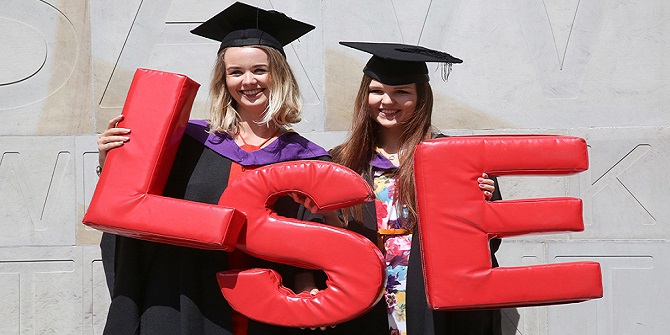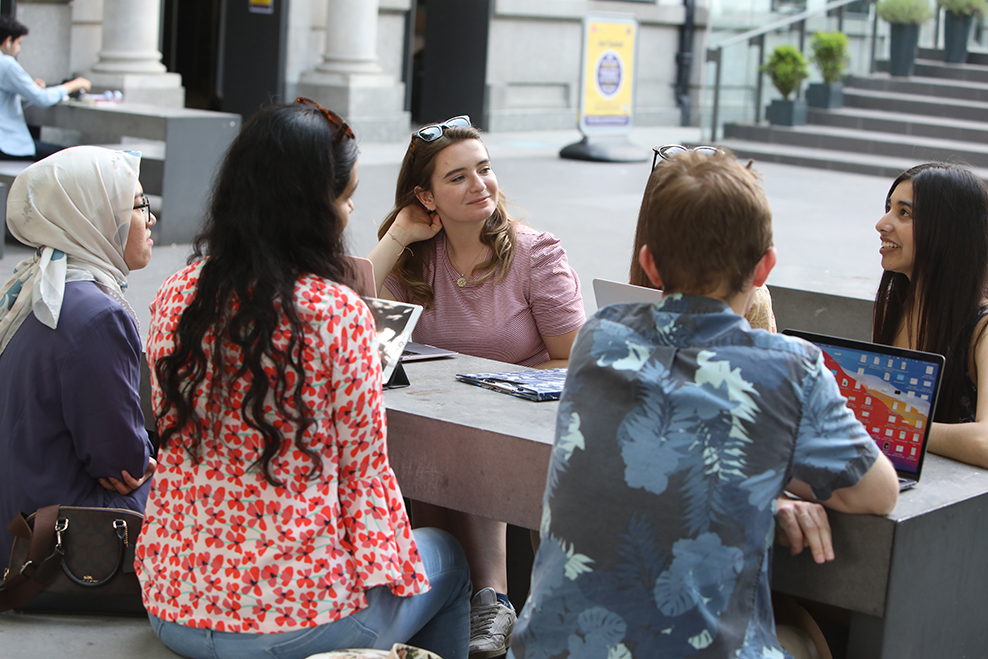Working across mainland Europe was the connecting career theme of speakers at this PhD alumni panel in Spring 2023. From their first post-PhD role to their current positions, the four speakers are employed in either Austria, the Netherlands, or Germany; working in academia, international organisations, government, or the private sector.
For different reasons, location mattered to each of the speakers who consciously chose factors matching their both their personal and professional needs when making career choices. The cultural differences between different countries were discussed, and being aware of the norms, conventions and practices of your target country helps, both when you’re applying and when you’re settling into in work. Career is always an interplay of the unique individual and the current contextual factors, a dynamic we explored through the career stories of our generous and thoughtful speakers. This blog explores some of the key learnings from our panel discussion.
Panellists included:
- Dr Dustin Voss, PhD LSE European Studies 2022, Postdoctoral Researcher at the Max Planck Institute for the Study of Societies in Cologne, Germany.
- Dr Christian Laheij, PhD LSE Anthropology 2015, Strategy Lead at Gemic in Berlin, Germany.
- Dr Toon Van Overbeke, PhD LSE European Institute 2022, Assistant Professor of Europe Climate and Digital Society at the University of Maastricht in the Netherlands.
- Dr Maurice Dunaiski, PhD LSE Government 2021, Crime Researcher at the United Nations Office on Drugs and Crime (UNODC) in Vienna.
Career building during the PhD
The importance of networks and connections with other people was emphasised by all the speakers. Interactions including meeting people at conferences and having informal conversation with alumni had influenced their future choices. Deciding what not to apply for and being strategic in their search was discussed as they reflected on allocating time to different activities. Job hunting is work and takes time away from other things, their advice is to be mindful of where you chose to spend your time. In the private sector, experiences matter, so time allocated to internships and work experience pays off in that field. On the other hand, reputation matters in the academic field, where ‘being known’ is key, and so time taken to disseminate your work opens door to future opportunities.
Happenstance
None of us can control the external world, so a certain amount of flexibility and a positive attitude helps career development. One speaker summed this up as “what comes along influences what happens”. All the speakers had considered staying in academia and moving outside; the options available to them at the time and the type of working conditions influenced their decisions about which offers to pursue. They all mentioned family ties and personal relationships as important factors in their decisions and did not regret prioritising these.
For example, Dr Dustin Voss now works as a post-doctoral researcher at the Max Planck Institute for the Study of Societies in Cologne, Germany where he is happy to be research active with a policy focus and the time and freedom to work on individual projects. Having two years of funded postdoc time for research without teaching allows Dustin to focus on publishing papers from his PhD and making his first big grant application for a new project. He turned down an offer for a lecturer position in the Netherlands to take this and enjoys the flexibility and freedom his current opportunity provides while realising it will not last forever. If he pursues it, he perceives that his future academic roles will be very different from this postdoc.
Broadening your horizons
One job move does not define your career and a tendency to be receptive to new ideas can open a range of opportunities. Dr Christian Laheij is now Strategy Lead at Gemic, Berlin, Germany. Previously, Christian was a Research Fellow at the Max Planck Institute for Social Anthropology in Halle, Saxony-Anhalt, Germany where his research explored dynamics of cultural change, radical uncertainty, and urban transformation. He was grateful to be awarded that offer in academia before submitting his thesis. The role went well, but changes to his personal circumstances led him to reconsider the precarity of academia. He is aware that the transition from academia is not straightforward, saying that you have to be fairly certain that you want to leave, as returning is not easy.
Looking for alternatives, he found a group of social scientists working at Gemic, an insight-led consultancy combining anthropological methods with business acumen to translate evolving cultural, commercial, technological, and human contexts into growth strategies that create value in a changing world. He took an internship to learn more about the organisation and liked the style of working – solving problems by making the strange familiar and questioning what we take for granted. The internship led to a permanent post which he enjoys as it provides endless opportunities for curiosity and learning, whether about new methods, new clients, or consumer needs.
By broadening his horizons, Christian discovered he likes helping clients to find their strategic direction as it involves creativity and close collaboration with diverse stakeholders.
Knowing the values that matter to you
Different roles fulfil different career values and knowing your preferences will help determine which pathways will provide satisfaction. Dr Toon van Overbeke is a lecturer at the University of Maastricht and turned down a fixed term research contract at the European University Institute (EUI) because the role at Maastricht offers him more stability, a relevant research environment, and is a better location for personal and professional reasons. The particular nature of the department was a strong factor in his choice where both the topics and methods of Toon’s work are a good fit with other academics. The application process was a traditional format, CV, application letter, research statement and teaching statement. The interview process is rigorous so he prepared well, taking time to learn to present himself well by practising, doing mock interviews, and realising that he had to take some control of the conversation during the interview.
Realising your interests
Research positions at international organisations such as the World Bank or the Organisation for Economic Co-operation and Development (OECD) were options for Dr Maurice Dunaiski when he was job searching towards the end of his PhD at LSE. Now a crime researcher at the United Nations Office on Drugs and Crime (UNODC) in Vienna, Maurice conducts research into crime-related topics such as homicide, prisons, and corruption. While job location and family life were factors influencing Maurice’s decisions, the impact of his work is very important and knowing his contribution is read by people who can act and influence policy gives him job satisfaction. Maurice uses the skills he developed during his PhD to conduct statistical analysis, pursue research, and write reports in a team environment.
What does your future look like?
Common early destinations for LSE PhD graduates include:
- Teaching and research in higher education (roles such as: Lecturer; Associate Professor; Assistant Professor; Fellow; Postdoctoral Researcher; Research Assistant; Research Officer)
- Other roles in higher education or related fields (for example: education developer; educational technologist; research manager; grants manager; Librarian; Careers Consultant; academic publishing)
- Research outside higher education (for example in organisations: working in public policy, like the NHS; in development, like development consultancies or international organisations; in user experience in the commercial sector; in social, economic, or political research; or as a Freelance researcher)
- Other roles outside higher education (job titles such as: Policy advisor; Consultant; Civil Servant; Freelancer; Writer; Website developer or editor; Analyst; Data Specialist etc. Organisations such as: the Civil Service; OECD; UN Agencies; financial institutions; regulators; political parties; tech companies)
Tell me who you want to hear from, what you want to learn about, and we can plan more events to support your career development. I’m here to help you learn.
LSE Careers is here to help…
PhD alumni panels are hosted several times a year by LSE Careers; employers are invited to campus too. These are part of a centrally organised careers programme to help you learn about your possible futures and how to manage the transitions. The events offer breadth that may not be available in your department. You can also arrange careers panels yourselves or co-create with my assistance.
Tell me who you want to hear from, what you want to learn about, and we can plan more events to support your career development. I’m here to help you learn.
For more support with planning your next steps after your PhD, book an appointment with Catherine Reynolds.





